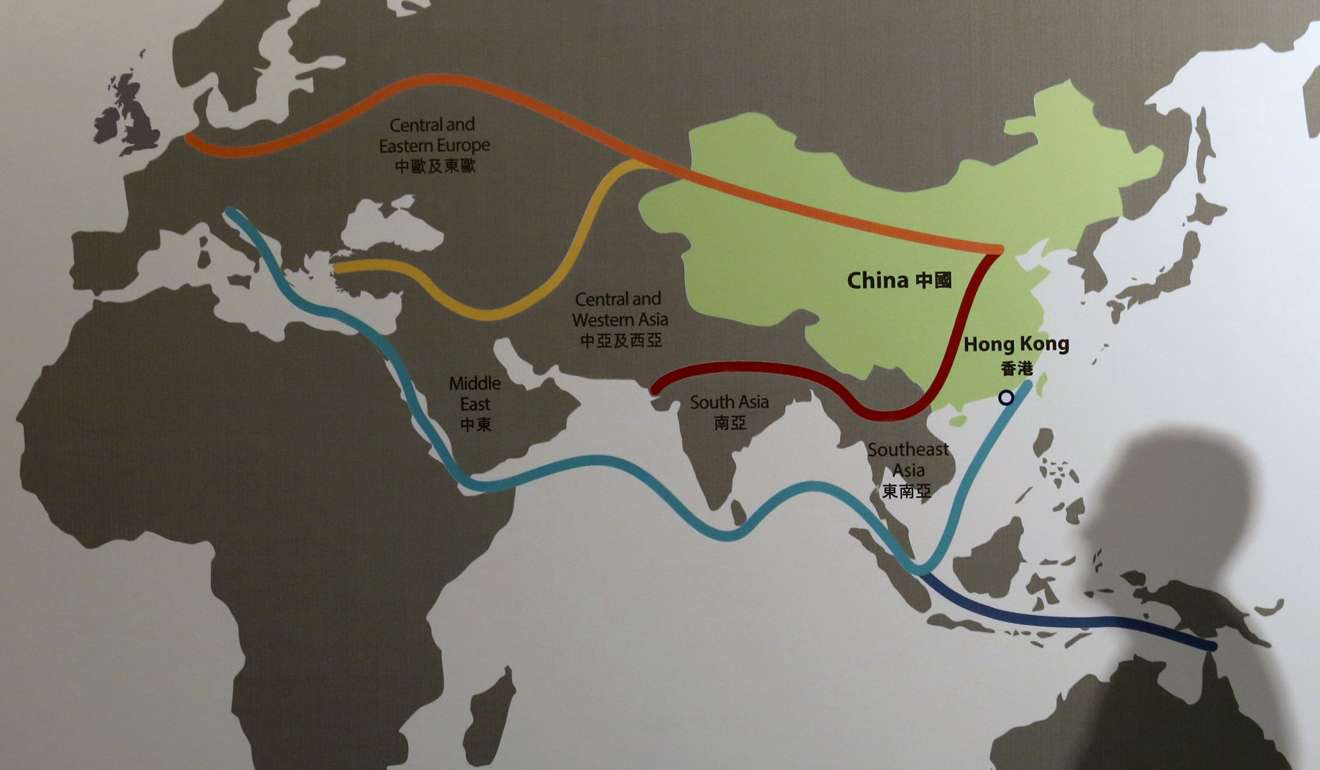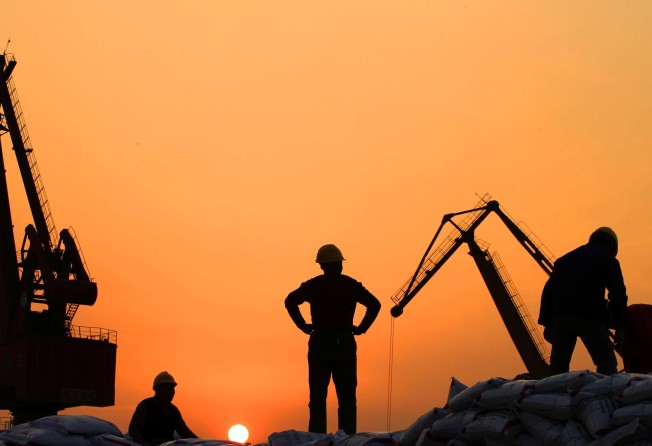
Crucial to success of China’s ‘One Belt’ plan? A little reciprocity, say experts
Beijing wants to create an investment umbrella covering dozens of nations, but if Chinese companies are given preference in projects, the strategy will fail, forum hears

China’s push to create new trade and infrastructure links through its “One Belt, One Road” initiative will be hampered by Beijing’s reluctance to open up investment for foreign companies, according to experts.

Launched in 2013, Xi’s programme calls for billions of dollars to be ploughed into new railways, ports, and energy projects in 65 countries. China has invited leaders from more than 20 countries to a summit on the plan it is hosting in May and hopes will be larger than the G20 meeting held in Hangzhou last year.
John Farnell, a former director at the European Commission, said China would need to clearly spell out the investment opportunities for companies if it wanted other nations to participate. Fair, open bidding on contracts is a must.
“If China’s vision of ‘One Belt, One Road’ is an extension of what happened in its domestic market, then there probably will not be a lot of space for European participation,” said Farnell, who managed the EU’s policy dialogue with China before retiring in 2012.
He said Beijing’s reluctance to open up its government procurement of goods and services to outsiders had worsened trade imbalances with Europe.
There is a fear the same trend will occur with investment. Over the past decade, China basically shut out European capital to protect state-owned companies, particularly in telecoms and finance, stalling investment growth from the European bloc.
“Clearly we want big construction projects, legal and financial services in ‘One Belt, One Road’ to be opened up to international competition, and the most effective way is to have as much competition as possible,” Farnell said.

Professor Rana Mitter, director of Oxford’s China Centre, said the decision by US President Donald Trump to abandon the Trans-Pacific Partnership would create opportunities for China’s belt initiative, but its success would depend on a stable security environment in east and Central Asia.
It remained to be seen how Beijing would reconcile its increasingly assertive policies in Southeast Asia with the need for such stability, Mitter said.
Professor Kerry Brown, director of the Lau China Institute at King’s College, London, said Xi’s project was intended to present the world with a view of statecraft different from what the West espoused. But so far Beijing had failed to find a rhetoric that would appeal to Westerners.
While China had signed up for rule-based global systems such as the World Trade Organisation, the country remained fundamentally sceptical of such liberal international orders, he said. There was little all 65 countries had in common – whether it be rule of law, culture or language.
“The origin of the belt and road idea is to open up China’s landlocked western provinces towards Central Asia … in a sense it is exporting China’s internal needs to find external solutions,” he said. “Will other countries feel that is in their interests?”
Farnell said Chinese companies might be less aware of the legal and financial risks in dealing with countries along the routes, especially those with complex political situations. He also warned of uncertainties brought by China’s rapid drop in foreign-exchange reserves and volatile energy prices in the international market.